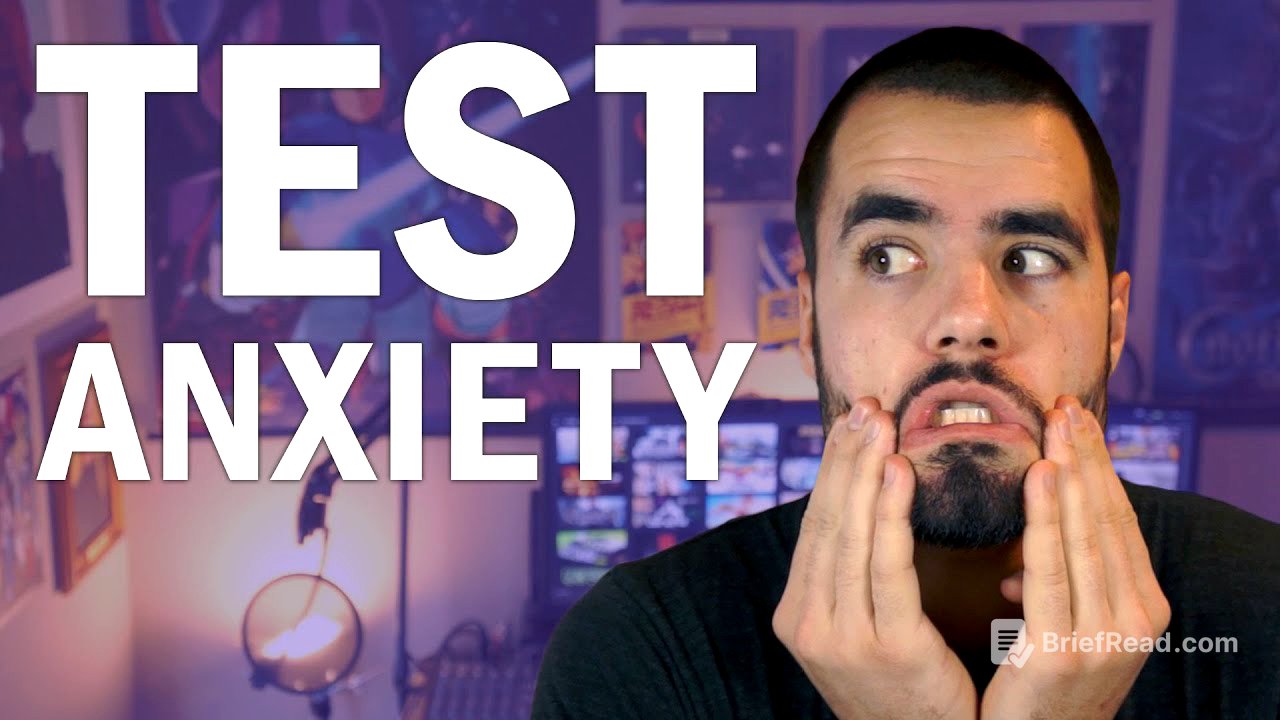TLDR;
This video addresses test anxiety by identifying and dismantling three core fears: the Fear of the Unknown, the Fear of Inadequacy, and the Fear of the Stakes. It provides practical strategies to transform these fears into manageable challenges, emphasizing preparation, perspective, and self-confidence. The video also touches on perfectionism and past failures, offering advice to overcome these additional anxieties.
- Conquer the Fear of the Unknown by recreating test conditions, asking professors for details, and reviewing old tests.
- Combat the Fear of Inadequacy through diligent preparation, efficient revision, and active study techniques.
- Overcome the Fear of the Stakes by recognizing that a single test does not define your worth or future.
Intro [0:01]
The video introduces the topic of test anxiety and aims to help students mitigate the stress and fear associated with exams. It acknowledges that while a small amount of stress can be beneficial, excessive anxiety can negatively impact performance. The video focuses on three main fears students face: the Fear of the Unknown, the Fear of Inadequacy, and the Fear of the Stakes. Additionally, it mentions perfectionism and past failures as other worries that will be addressed later in the video.
The Fear of the Unknown [1:31]
The best way to conquer the fear of the unknown is to familiarize yourself with the test as much as possible. This can be achieved by recreating test conditions during study sessions, including the location, time constraints, and types of questions. Another effective strategy is to ask your professor for details about the test format, types of questions, time allowed, and permitted materials. Lastly, look for old tests from fraternities, sororities, student organizations, or websites like koofers.com to get an idea of what to expect.
The Fear of Inadequacy [3:10]
The feeling of being unprepared can be addressed through consistent preparation throughout the semester. During the weeks leading up to the test, revision is crucial. Identify areas of weakness by reviewing notes and materials to focus on solidifying understanding of those concepts. Create a detailed "home stretch schedule" that includes time for classes, work, eating, sleeping, and studying. When revising, use active study techniques like creating quizzes to actively recall information. If feelings of inadequacy persist, try acting confident and writing out your worries before the test to clear your mind.
The Fear of the Stakes [5:49]
The fear that a test is the determining factor in your life can be overcome by recognizing that one test does not define you. Academic performance is just one aspect of success, alongside value creation and relationship building. View the test as an examination of a small body of knowledge rather than an all-powerful judgment. Use the pressure to your advantage by finding your center, generating confidence, and allowing the pressure to sharpen your senses.
Additional Worries [6:49]
Two additional worries that students often face are perfectionism and past failures. It's important not to expect absolute perfection on an exam, as it is unhealthy. Focus on knowing your goals and working hard, but accept that mistakes can happen. If you have failed in the past, remember that the outcome of a situation is determined by the factors involved. By changing the way you study and prepare, you can change the result on a test.









